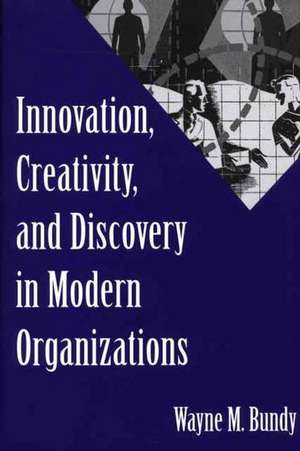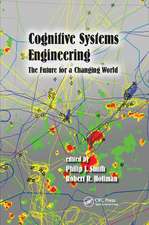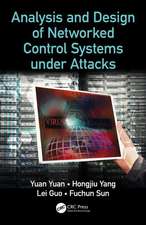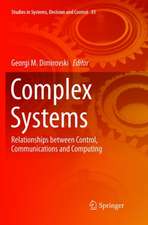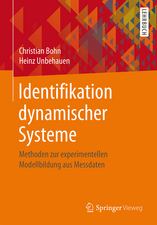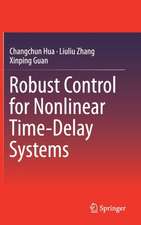Innovation, Creativity, and Discovery in Modern Organizations
Autor Wayne M. Bundyen Limba Engleză Hardback – 29 iul 2002 – vârsta până la 17 ani
Preț: 439.34 lei
Preț vechi: 605.08 lei
-27% Nou
Puncte Express: 659
Preț estimativ în valută:
84.07€ • 86.86$ • 69.94£
84.07€ • 86.86$ • 69.94£
Carte tipărită la comandă
Livrare economică 20 martie-03 aprilie
Preluare comenzi: 021 569.72.76
Specificații
ISBN-13: 9781567205695
ISBN-10: 1567205690
Pagini: 304
Dimensiuni: 156 x 235 x 18 mm
Greutate: 0.6 kg
Ediția:New.
Editura: Bloomsbury Publishing
Colecția Praeger
Locul publicării:New York, United States
ISBN-10: 1567205690
Pagini: 304
Dimensiuni: 156 x 235 x 18 mm
Greutate: 0.6 kg
Ediția:New.
Editura: Bloomsbury Publishing
Colecția Praeger
Locul publicării:New York, United States
Notă biografică
WAYNE M. BUNDY holds a doctorate in geology and until his retirement specialized in clay minerology and geochemistry. He has worked for the New Mexico Bureau of Mines, the Indiana Geological Survey, and as Vice President of Technology for the Georgia Kaolin Co. He has published articles in the journals of his field and holds nine U.S.patents. This is the second of his two recent books on the topic of innovation and creativity.
Cuprins
PrefaceThe Lure, Some Obstacles, and the Enchantment of DiscoverySome Background for Creativity and DiscoveryCreativity in the Ancient World and the Middle AgesCreativity in the Renaissance and the Emergence of Modern TechnologyThe Nature of the Technical WorldThe Nature of CreativityMechanisms and Models of CreativityA New Model for CreativityKnowledge Gain: The Nature of Knowledge and the Origin of ScienceKnowledge Gain: Problems, Dynamics, and Essential Knowledge PatternsPreparationIncubationStimulation: Research and External StimuliStimulation: Thought Processes Behind DiscoveryStimulation: Conventional Thinking IStimulation: Conventional Thinking IIStimulation: Unconventional Thinking IStimulation: Unconventional Thinking IIIlluminationMaking Creativity and Discovery a RealityThe Environment and Actions that Stimulate Creativity and DiscoveryA Few Thoughts on the Management of DiscoveryThe Social Structure of InnovationThe Elusive Future of the Technical, Creative EnterpriseBibliographyIndex
